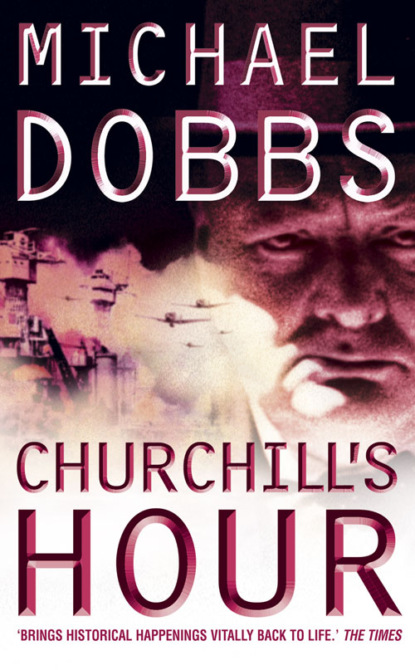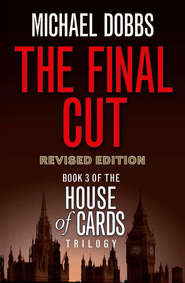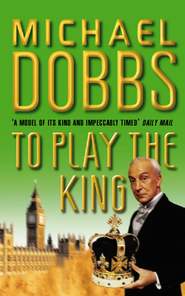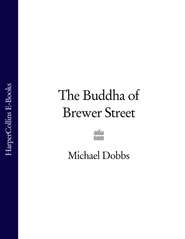По всем вопросам обращайтесь на: info@litportal.ru
(©) 2003-2025.
✖
Churchill’s Hour
Автор
Год написания книги
2019
Настройки чтения
Размер шрифта
Высота строк
Поля
‘I’m sorry, Prime Minister.’ Churchill’s spymaster unlocked a briefcase and extracted a slim manila folder, which he placed on the table and smoothed open. ‘You won’t have heard of the Automedon, I suspect. No reason why you should. But it’s been sunk by the Nazis.’
Churchill glared defiantly, waiting for the bullet to strike him.
‘It happened last month, on her way to Singapore. Small cargo of car bits, cigarettes, whisky, that sort of thing.’
‘I suspect the distilleries will be able to resupply them,’ Churchill responded slowly, hoping words might quell the sense of unease that was rising up his gullet.
‘She was boarded before she was sunk, several of her crew killed, including the captain, and the rest captured and taken to the Japanese port of Kobe. They were disembarked in Kobe while waiting to be loaded onto another German ship. That’s when one of our agents managed to speak briefly to members of the crew. We’ve been able to confirm their identity and…’—he paused, steadying himself—‘we have no reason to disbelieve their story.’
‘Which is?’
‘While the German boarding party was on board the Automedon, they discovered the ship’s safe in the strong room. They blew it open. Got everything inside it. Decoding tables, maps of harbour defences, minefields, intelligence reports, the lot.’
‘Such material is the currency of war. This surely amounts to little more than loose change.’
But Menzies was shaking his head. ‘That’s not it, I’m afraid. While they were making their tour of the ship, they also found the body of an Admiralty courier. Beside him was one of our security bags. It seems he was in the process of throwing it overboard when…Well, he didn’t make it. Neither did the bag.’
Churchill knew of these bags. Green canvas, with brass eyelets to allow the water in and lead weights sewn inside to ensure that the bag and its contents sank quickly to the bottom of the ocean. The couriers were instructed to defend these bags with their lives. The courier on the Automedon appeared to have done precisely that.
‘It seems,’ Menzies said slowly, as if every word had suddenly become a burden, ‘that inside the pouch was a letter addressed to Brooke-Popham.’ The name needed no elaboration. Air Chief Marshal Sir Robert Brooke-Popham was the British Commander-in-Chief, Far East, based in Singapore. His was one of the most sensitive and difficult commands anywhere in the Empire.
‘Usual routine for top secret material,’ Menzies continued. ‘Instructions that it be opened by no other hand et cetera et cetera.’ He sipped at his whisky, but appeared to find no enjoyment in it. His lips were tightly pursed. ‘When the German ship reached Japan, the letter apparently found its way to the German Ambassador in Tokyo—we have that from intercepts—and he in turn handed it on to Kondo.’
‘Kondo?’
‘The Vice Chairman of the Japanese Imperial Naval General Staff.’
Churchill stared into the cold, empty hearth. ‘And what did the letter contain?’
‘It was…dear God, I think you’ll remember it, Prime Minister.’ Menzies sighed, his shoulders falling in discouragement. ‘A copy of the analysis drawn up by our Chiefs of Staff on our ability to defend ourselves in the Far East in the event that the Japanese declare war on us.’
Churchill froze. He did not stir for many moments, but the glass in his hand tilted as his fingers seemed to lose all sensation. The only sound in the room was the slow dripping of whisky onto the carpet.
Eventually a tremor came to his lips. ‘What on earth was it doing on a tramp steamer like the Automedon?’
‘It’s a tangled little tale,’ Menzies said, finding comfort now that he would be able to offload the burden—and, with it, much of the blame—onto other shoulders. ‘Apparently the War Office didn’t want the paper to get to Singapore too quickly—not in the middle of the difficult negotiations with the Australians—you know what’s been happening. They’ve been pestering us with demands for more and more British reinforcements to be sent to the Far East, while we’ve been insisting that there is no real need. So apparently it was felt that the paper would only…How can I put it?’
‘Complicate the situation.’
‘Precisely.’
‘They decided to cover their arses,’ Churchill growled. ‘They would send it, but so slowly that by the time it arrived it might be buried in obsolescence. Of no use to—and no blame upon—anyone.’
‘I think that’s a reasonably accurate summary, yes. They also wanted to get it to Singapore in a manner that would arouse no suspicion. So they…’
‘Put it on a rust bucket.’
‘That seems to be about the measure of it, Prime Minister. I’m so very sorry.’
But Churchill was no longer listening. His face was flushed with both anger and anguish as his mind cast back to the contents of the paper that he himself had commissioned. It ran to seventy-eight closely argued paragraphs and came to one damning conclusion—a conclusion so devastating that he had refused to allow it to be discussed even by his War Cabinet.
Churchill leant forward, as though wanting to spring at the other man, fixing him in the eye. ‘The Japanese have it? You are sure?’
His stare was returned.
‘On the basis of what we know, it seems all but certain.’
‘Then may God preserve us.’
The Chiefs of Staff had concluded that the British couldn’t beat the Japanese. Not a chance, not on their own. Hong Kong, Malaya, Singapore, all the territories and possessions of the British in the Far East, the jewels of their Empire, were virtually defenceless. Waiting to be plundered.
And the Japanese knew it.
A little later, as Churchill climbed the stairs to bed, he found himself accompanied by an unfamiliar and deeply troubling sensation. Only in the middle of the night, when he was still struggling to sleep, did he finally recognize the ruffian.
It was fear.
TWO (#ulink_7bc2dc99-fc96-585f-8263-07ac7e8c39d8)
Anthony Eden, the Foreign Secretary, was a man of both power and charm; some even said that he would be the next Prime Minister. Yet beneath his suave and immaculately groomed exterior there were occasions when he betrayed the inner tension that left him thin and always anxious.
‘Try hanging it on the other wall, will you?’ he instructed tersely.
The two workmen cast a disdainful eye at the politician. ‘Not the only thing that could do with a little hanging,’ one of them muttered darkly, but out of earshot. ‘This wall, that wall, whichever wall he wants, it’s still only a ruddy painting.’
Eden turned from his examination of the panelling. ‘You have a problem?’
‘Not really.’
‘Speak up, man. Better in than out.’
‘Well, sir, I don’t understand why we have to move the blessed thing at all. Been there long enough. Why do we have to move it just ’cos some Americans are coming?’
‘Because it’s George the Third.’
The explanation was met with a blank stare.
‘He was mad,’ Eden continued.
‘But still a king,’ the workman countered doggedly. ‘Our king.’
‘I take your point. But kings aren’t particularly popular with Americans. Particularly this one.’
The towering portrait of George III with its ornate gilt frame had dominated the meeting room of the Foreign Office since, well, ever since anyone could remember, but now it was to be moved. Eden had instructed that all appropriate arrangements were to be made for welcoming the forthcoming American delegation and had clearly come to the conclusion that a portrait of the mad king who had helped ignite the American Revolution would cast an inappropriate shadow over proceedings. It had to be moved somewhere less prominent.
‘Let’s try it on the other wall,’ he suggested, waving an elegant cuff but without much sign of conviction.
The workman and his partner didn’t move a muscle.











